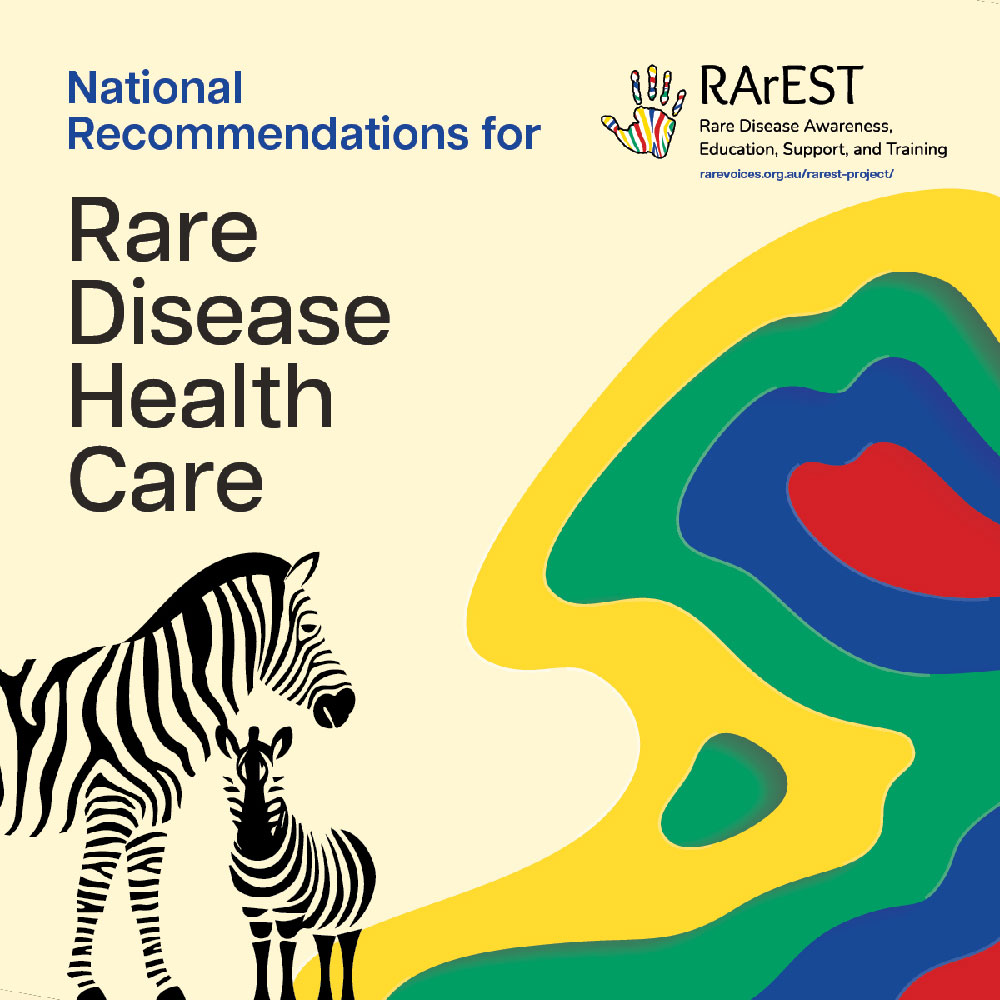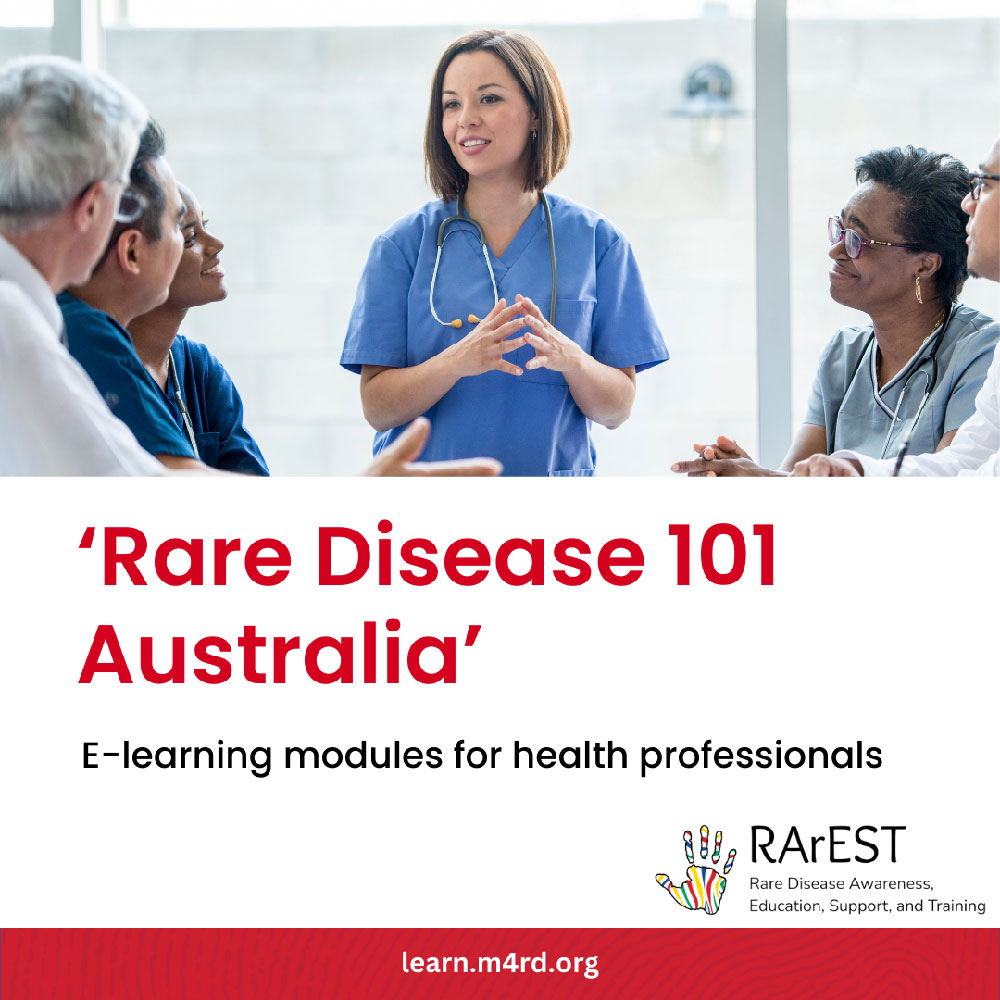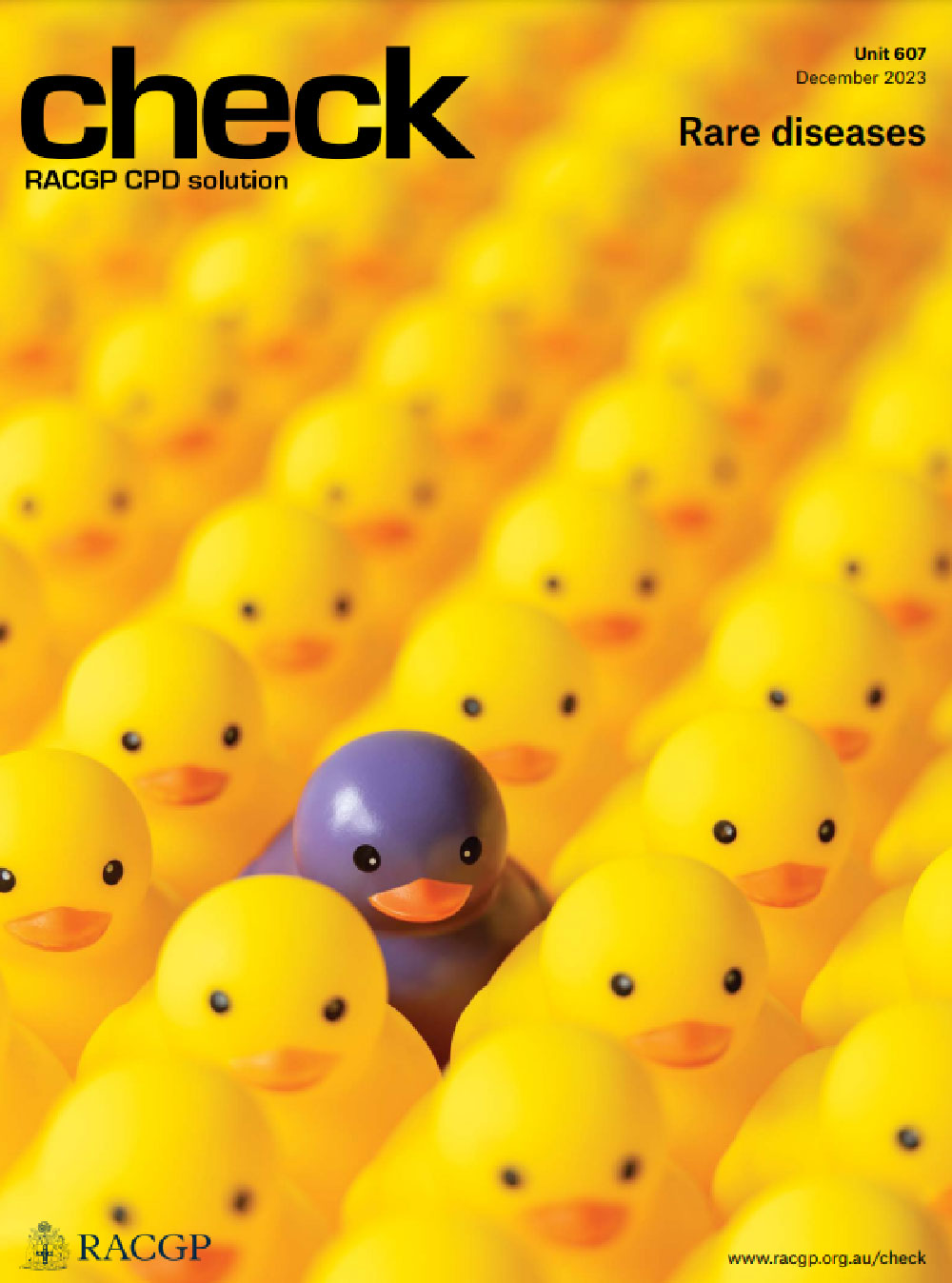Quick Search
- National Recommendations for Rare Disease Health Care
- E-Learning Modules for Health Professionals: Rare Disease 101 Australia
- Rare Disease Case-Based Learning for General Practitioners
- Lyfe Languages Universal Medical Translator
- Rare Disease Project ECHO®
- Rare Awareness Rare Education (RARE) Portal
- Rare Disease Mental Health and Wellbeing Resources
- Resources for Priority Populations
- More Information
The Australian Government’s National Strategic Action Plan for Rare Diseases (the Action Plan) acknowledges the important role that primary health care professionals play in the early recognition, diagnosis, and management of rare diseases. A primary care professional may be a general practitioner (GP), dentist, nurse, midwife, allied health professional or a Aboriginal and Torres Strait Islander health practitioner. For most people living with a rare disease, a primary health care professional will be their first point of contact in the Australian health system. This page lists several rare disease education and support resources for primary health care professionals.
National Recommendations for Rare Disease Health Care

Australia’s first-ever National Recommendations for Rare Disease Health Care (the Recommendations) outline how Australian health professionals can provide high quality care to people living with a rare disease, including families and carers.
Co-designed by an extensive multi-stakeholder consultation process led by the University of New South Wales (UNSW Sydney), the University of Western Australia, Macquarie University and Rare Voices Australia (RVA), the Recommendations were developed in collaboration with health professionals, academics, and people living with a rare disease.
The Recommendations are endorsed by RVA and 10 national colleges and bodies. They have also been officially recognised as an accepted clinical resource by The Royal Australian College of General Practitioners (RACGP) and The Australian Primary Health Care Nurses Association.
E-Learning Modules for Health Professionals: Rare Disease 101 Australia

In collaboration with Medics4RareDisease, a not-for-profit organisation based in the United Kingdom, Rare Disease 101 Australia is a series of short, free and interactive e-learning modules for health care professionals customised for the Australian context. The modules have been informed by extensive consultation with people living with a rare disease and Australian health care professionals.
Register for free via the Medics4RareDisease website.
Rare Disease Case-Based Learning for General Practitioners

Continuing Professional Development (CPD) accredited case-based learning focused on rare diseases is available on the RACGP website. This content has been developed specifically for GPs. check is a CPD learning activity written by expert clinicians and reviewed by subject matter experts. RACGP members can use the ‘Search’ function to enrol in the ‘Check: 2023 catalogue’ course.
Unit 607 includes 4 case-based scenarios that GPs may encounter in routine clinical practice. Each case includes background and additional information, clinical questions, and answers. The activity is accredited for 8 hours of CPD.
Lyfe Languages Universal Medical Translator
The Lyfe Languages Universal Medical Translator is available via the Lyfe Languages web application. The web application features a purpose-built rare disease module. The module provides rare disease education and support to health professionals and people living with a rare disease.
Culturally appropriate Indigenous text and audio translations are recorded and made accessible for health professionals/clinicians to use with their patients via the platform. The Lyfe Languages web application is a living resource, which means new translations will continue to be added to the platform over time.
Lyfe Languages is an open-source online platform that translates medical terminologies into Indigenous languages. It is led by young Indigenous Language Champions who work with their elders on translations. Visit the Lyfe Languages website for more information.
Rare Disease Project ECHO®
Rare Disease Project ECHO® is a free virtual learning model consisting of 1-hour webinars with health professionals from across Australia. It is designed to address the needs of underserved populations by equipping communities and clinics with the right knowledge, at the right place, and the right time.
Rare Disease Project ECHO® is delivered in partnership with RVA, UNSW Sydney, Rare Diseases NSW, and the Rare Care Clinical Centre of Expertise for Rare and Undiagnosed Diseases located at Perth Children’s Hospital.
Rare Awareness Rare Education (RARE) Portal
The Rare Awareness Rare Education (RARE) Portal is Australia’s growing national resource for rare diseases, housing an online library of current, reliable and straightforward rare disease information. It includes a comprehensive collection of national, state and territory based rare disease information, resources, services and supports relevant to all Australian rare disease stakeholders as well as a directory of individual rare disease information pages and support organisations. The RARE Portal’s key point of difference is that it is being collaboratively developed and customised for the Australian context. It is a living website in ongoing development. More information, resources, and individual rare disease pages will continue to be added to the site over time.
Rare Disease Mental Health and Wellbeing Resources
This web page on the Rare Awareness Rare Education (RARE) Portal includes information about reliable resources, information and support pathways for health professionals working with people living with a rare disease. It also includes lived experience case study videos that highlight the mental health and wellbeing impacts of living with a rare disease.
Resources for Priority Populations
The National Strategic Action Plan for Rare Diseases (the Action Plan) identifies several priority populations that experience additional barriers to equitable access to rare disease care and support. The following collections have been curated to assist people from these populations who are living with a rare disease to access relevant information and support:
More Information
For more information about RVA’s policy and advocacy work, including the Action Plan, visit RVA’s website. You may also be interested in RVA’s Online Education Portal, which contains both courses exclusively available to RVA Partners (rare disease groups/organisations) and courses available to everyone.

